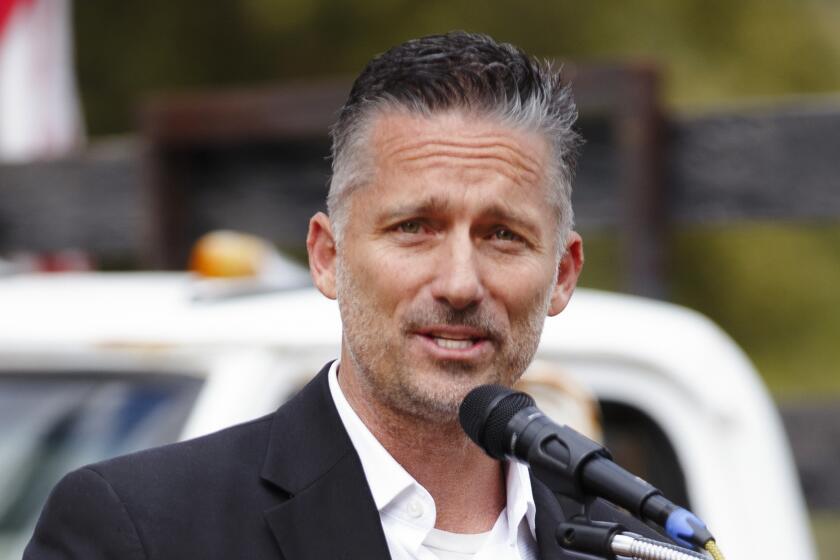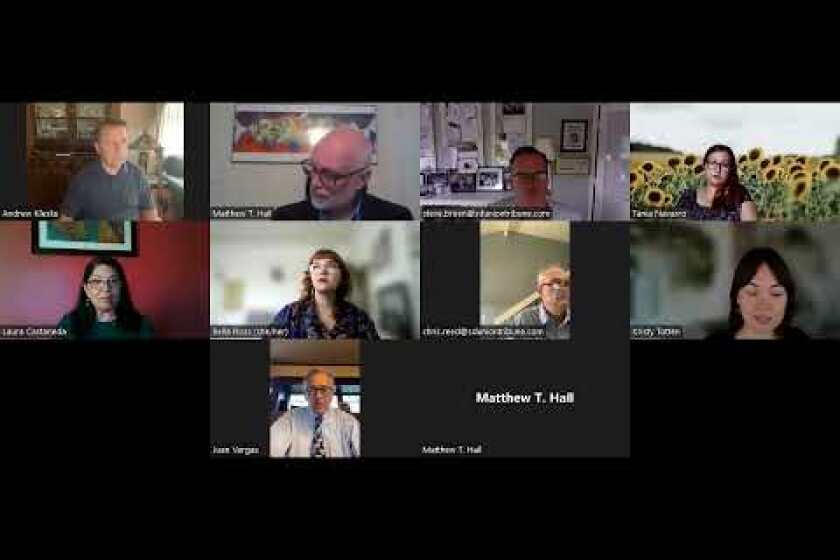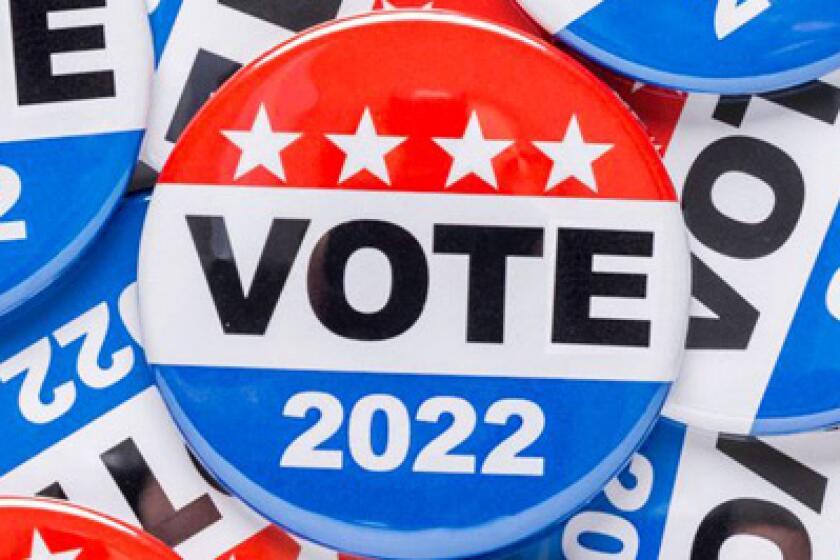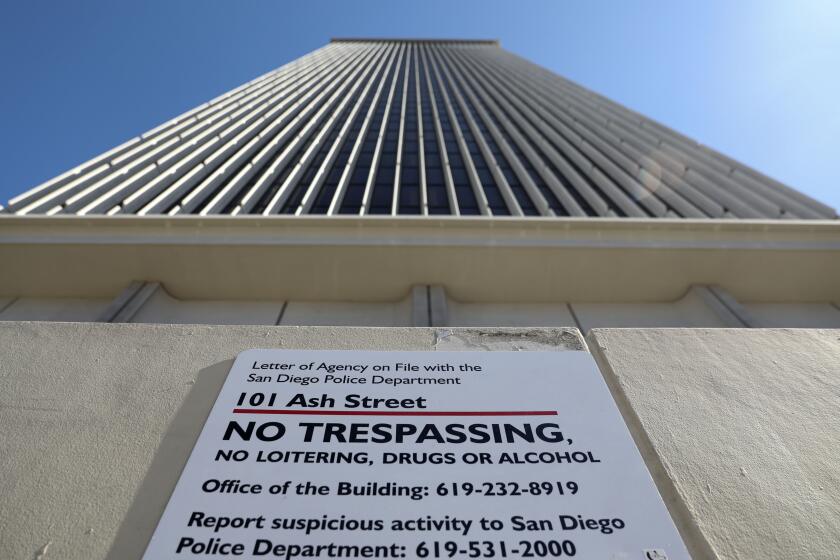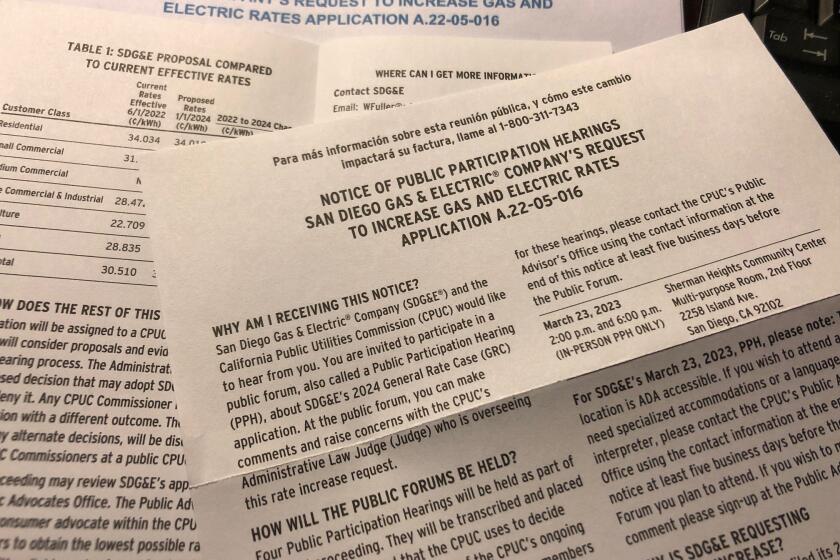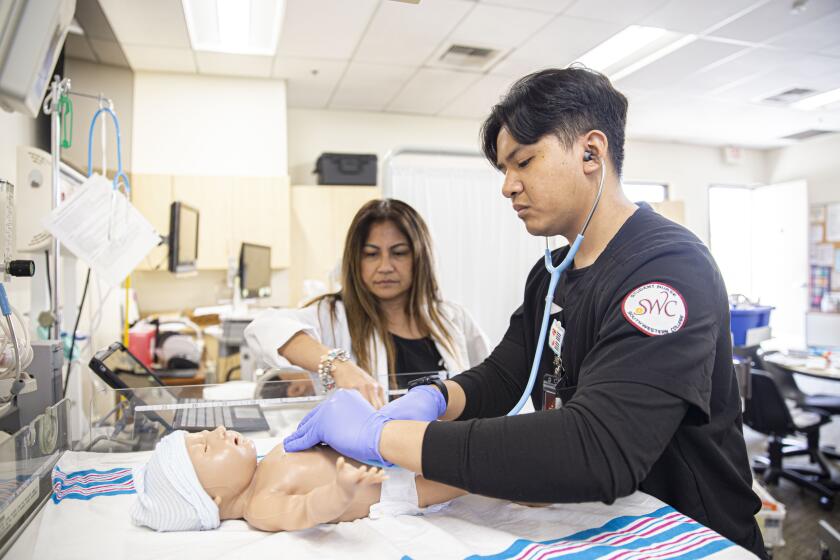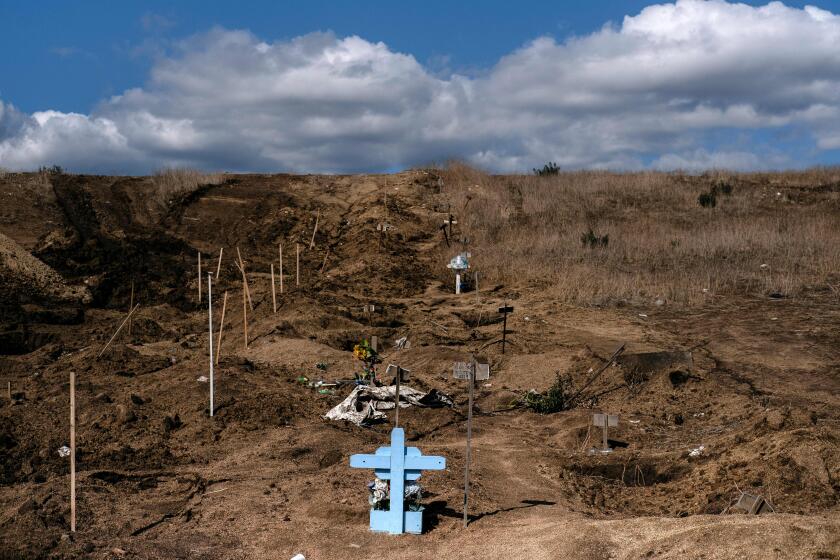Nov. 2022 Election: Q&A with Juan Vargas, 52nd Congressional District candidate
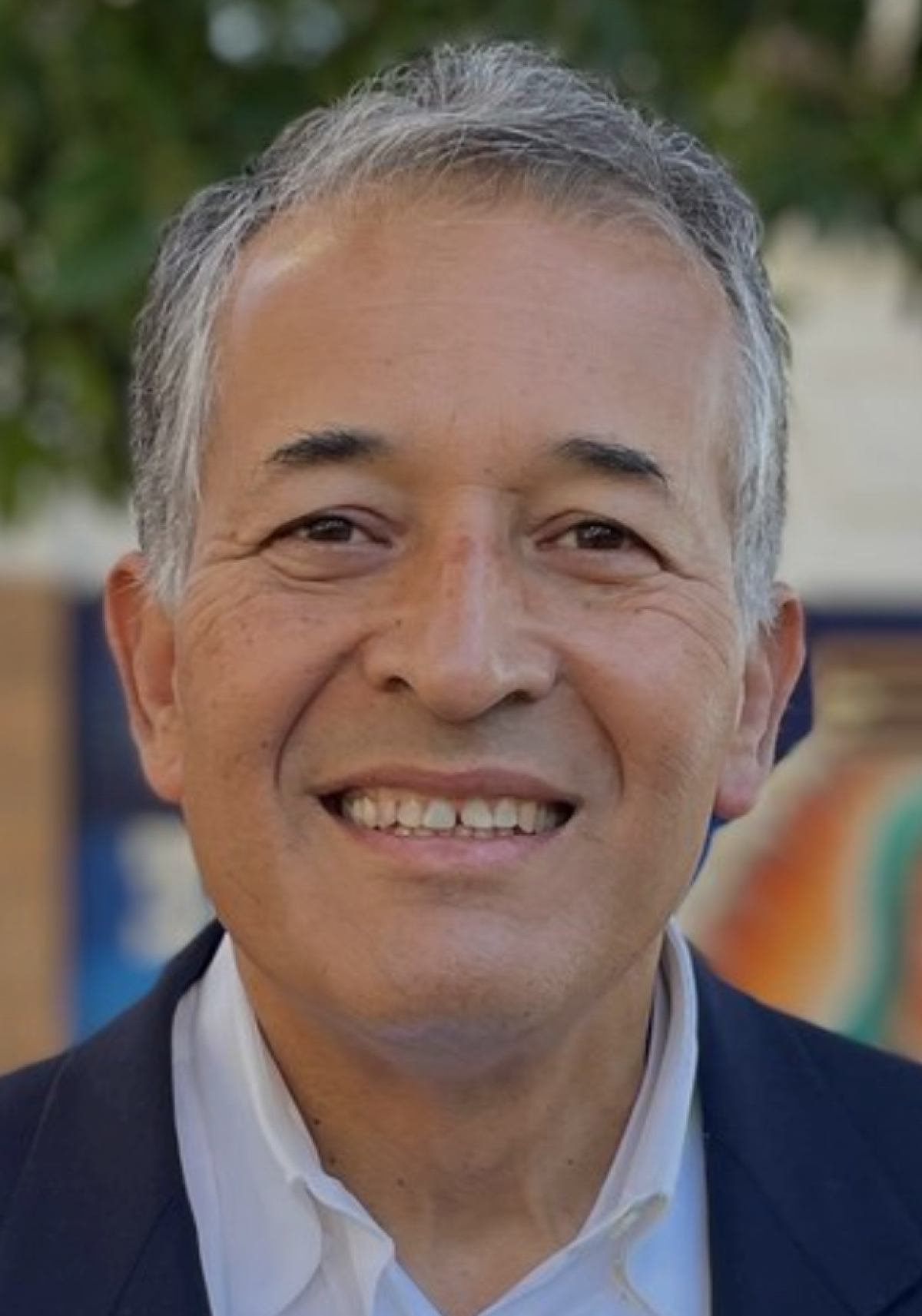
Democratic Rep. Juan Vargas, who is seeking a sixth two-year term in the U.S. House of Representatives, in the redrawn 52nd Congressional District, is being challenged by Republican minister/business owner Tyler Geffeney. Election Day is Nov. 8 and voting will begin a month earlier. Here are Vargas’ complete answers from both candidates to all 16 questions from The San Diego Union-Tribune Editorial Board.
Q: What will be your top domestic and international priority in Congress?
A: My top three priorities in the next Congress will be comprehensive immigration reform, generating new opportunities for increased homeownership for underserved communities and focusing on passing parts of the Green New Deal that will preserve our environment for future generations.
My top international priorities include supporting, strengthening and defending our strategic relationship with Israel, supporting Ukraine from Russia’s illegal invasion and combating the China threat.
Republican minister/business owner Tyler Geffeney is challenging Democratic Rep. Juan Vargas, who is seeking a sixth two-year term in the U.S. House of Representatives, in the redrawn 52nd Congressional District.
Rep. Juan Vargas met with The San Diego Union-Tribune Editorial Board ahead of the Nov. 8, 2022 general election.
Q: How do you view the events of Jan. 6, 2021, in our nation’s Capitol and what led up to them? Do those events have implications about the future of the United States?
A: Jan. 6, 2021, was a violent attempt to overturn a free and fair election — full stop. Jan. 6, 2021, should remind all Americans that our democracy and way of life are not guaranteed. If we do not learn from this insurrection and put laws in place to ensure that free and fair elections cannot be subverted in the future, America as we know it could be in jeopardy. Recent testimony at the Jan. 6 Committee hearings under oath by various administration officials shows just how close our nation came to a constitutional crisis. We must hold everyone involved in planning and executing the Jan. 6, 2021, insurrection accountable to the fullest extent of the law and ensure we have laws in place that will prevent another attempt to overthrow our democracy.
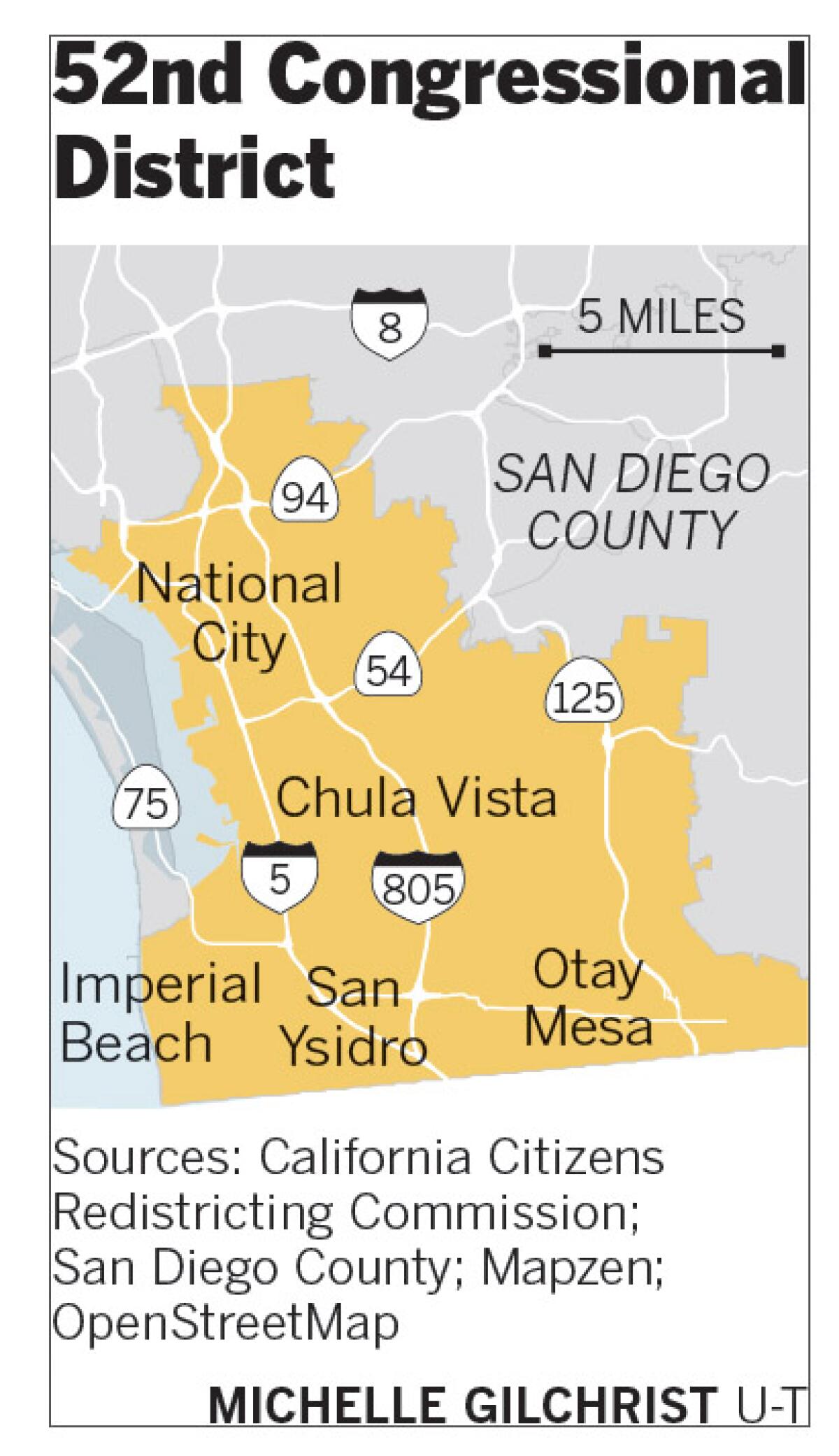
Between now and early October when voting gets underway, The San Diego Union-Tribune Editorial Board is planning to publish dozens of candidate Q&As and nearly two dozen commentaries connected to a handful of San Diego city ballot measures and seven state propositions on the Nov. 8 election. Keep checking back as we fill in this voter guide.
Q: Inflation is at 40-year highs in the U.S., causing economic hardship for many Americans. What can the federal government do about this? What will you do?
A: The first thing we can do is start telling the American people the truth — inflation is not a Biden administration problem, an American Rescue Plan problem or a U.S. government spending problem. Inflation currently is being caused by a global supply chain disruption and pent-up consumer demand following the COVID-19 pandemic, and it’s impacting nations worldwide — including the United States. So the first part of solving this challenge is acknowledging the true nature of its global scope and causes.
The federal government and Congress need to ensure we are providing all resources possible to clear out supply chain backlogs, speed up processing at all ports and pass financial support measures until this global congestion is relieved. Inflation is a very real problem hurting all of us, but we can work to lower costs by bolstering our supply chains and addressing pent-up consumer demand.
Q: Confidence in the Supreme Court is steadily declining. Should justices have term limits? Should the court be expanded? What, if anything, should change about the high court?
A: The Supreme Court has become highly politicized over the last 20 years, thanks to Senate Republican Leader Mitch McConnell’s partisan court-packing during the Trump administration.
I support President Joe Biden’s plan to appoint a commission to investigate potential Supreme Court changes. I believe term limits for Supreme Court justices would be a good way to help foster healthy and predictable change to the court over time. The Supreme Court has increased and decreased in size six times throughout our history before settling on the current number of nine justices in 1869, so the concept of increasing or decreasing its size is not new.
We need a more honorable way to vet potential justices before being confirmed, and we must ensure our justices change and grow alongside our nation. Finally, it is clear from Justice Clarence Thomas’ wife’s activity supporting the insurrection that the court needs a clear code of ethics to ensure conflicts of interest force justices to sit aside when appropriate.
Q: What do you see as the implications of the Supreme Court overturning Roe v. Wade?
A: Overturning Roe v. Wade was outrageous and fundamentally wrong.
The implications of this ruling are clear — the current conservative majority has demonstrated there is almost no law it will not consider overturning as it sees fit. Congress must exercise its authority and pass laws that enshrine these protections into federal law.
In November, voters can make their voices heard and elect leaders who support a woman’s right to choose and who will fight to protect marriage equality, disability rights and countless other rights that are not currently guaranteed in federal law.
Q: What will you do in Congress to combat climate change?
A: I am an original co-sponsor of the Green New Deal and have voted in favor of strong climate provisions. Unfortunately, the climate crisis is already here, and communities in San Diego are suffering from harmful pollution, wildfires and extreme weather. It’s on us to protect and preserve this planet for future generations. I’m committed to working with my congressional colleagues to pass important climate change legislation in the weeks, months and years to come.
Q: How should the U.S. approach the war in Ukraine? What should its involvement be?
A: I support President Biden’s approach to the war in Ukraine and stand with him on this effort. We should support Ukraine and its allies as long as it takes to ensure Russia’s illegal war does not succeed. The United States supports democracy around the world, and we must continue sending humanitarian, economic and military aid to Ukrainians.
Earlier this year, I joined my colleagues in calling on the Biden administration to accept Ukrainian refugees, as this brutal war has displaced many families and children. I will continue advocating to support the Ukrainian people in whatever way necessary.
The U.S.’s involvement conveys that we will always work to secure global peace and democracy.
Q: How should the U.S. change its immigration policies? What specific changes would you pursue?
A: We must pass comprehensive immigration reform. We must provide a pathway to citizenship for Deferred Action for Childhood Arrivals program recipients, Temporary Protected Status beneficiaries and the millions of undocumented people who call this country home. And it’s crucial we update the legal system that processes asylum cases, eliminating backlogs and making it easier for everyone to come here legally and quickly.
As a child of immigrants who came to this country as part of the Bracero Program, I know that people come to this country to seek better opportunities for themselves and their families.
It’s important we remember that immigrants come to this country looking for safety, refuge and a better life. Our nation was built by immigrants, and we must support them by creating a pathway to citizenship.
Q: What specific issues about border life in San Diego and Tijuana will you prioritize?
A: The top priority for the San Diego-Tijuana region that I will continue to prioritize is to continue working to solve the sewage challenge of the Tijuana River Valley.
Working with my San Diego delegation colleagues, we secured $300 million in funding to address this issue, but much more is needed. In the next Congress, we must secure additional funding to combat the cross-border pollution in the Tijuana River Valley to ensure the health and safety of communities on both sides of the border.
Q: The nation is experiencing more mass shootings with higher death tolls in recent years. How would you address this issue?
A: I was proud to vote for the Bipartisan Safer Communities Act that President Biden recently signed into law, but I recognize that we must do more to keep our stores, churches and schools safe. We need to ban assault weapons that were produced for use in war and ensure they stay out of dangerous hands.
We must pass a national background check for firearms purchases and strengthen red flag laws that can remove guns from people who are a risk to themselves and others. Many mass shootings could have been prevented if people had access to mental health care and were prohibited from legally purchasing military-style assault weapons that not only kill but slaughter.
Q: What did the U.S. government get right and wrong in its approach to the pandemic since its start in early 2020? How would you have responded differently?
A: When former President Donald Trump took office, he abandoned the Obama administration’s pandemic preparedness plan — this was a big mistake. However, I’m grateful that the COVID-19 vaccines were quickly developed, tested and distributed to our communities. The Biden administration hit its goal of 200 million vaccines in the first 100 days, preventing COVID-19-related deaths and keeping vulnerable communities healthy. While we’ve seen COVID-19 cases rising again, fewer people are getting seriously ill or dying because they’ve been vaccinated and boosted. I support the Biden administration’s work to combat COVID-19 and commend President Biden for trusting the science and getting millions of shots in arms since taking office.
Q: How would you address the rising cost of private health insurance nationwide? Do you support government-subsidized health insurance for all Americans? Why or why not?
A: I support Medicare For All and expanding coverage under the Affordable Care Act. No one should choose between paying for a visit to the doctor or keeping the lights on. A Medicare For All option could bridge the gap that private insurance and the Affordable Care Act can’t address, and it can help those from underserved communities receive quality health care. Recently, we hit the lowest rate of uninsured Americans in our nation’s history, thanks to the Affordable Care Act and the American Rescue Plan. We must keep this up and lower health care costs for communities here in San Diego and across the country.
Q: What can and should the federal government do to address the high cost of housing?
A: I’m working in Congress to support affordable housing initiatives to create and expand access to affordable housing across our region. Housing prices are rising, and far too many people are being priced out of their homes and neighborhoods. Congress can and must work with state and local partners to ensure we can offer community members long-term solutions and create more affordable housing options. Everyone deserves to own a home.
Q: Reducing homelessness has been a focus for all levels of government in recent years. What would you do differently?
A: I’m committed to addressing homelessness with our local government and organizations. In July, I co-sponsored the Naomi Schwartz Safe Parking Act to establish safe parking programs for unhoused Americans. We must make housing more affordable to address homelessness at its root, and I’m proud to be working in Congress to lower housing costs for our community. I support our local organizations providing temporary housing, medical care, substance abuse treatment, job training and financial assistance to our unhoused community members. I believe we can solve this problem by working together.
Q: The U.S. national debt has exploded in recent decades. Are you concerned about this?
A: A lot of the debt we generate contributes to our growth rate and helps moderate the debt threat over time. Defense spending and investments in biomedical research are examples that come to mind. I think Congress and all governments at the state and local levels must balance the need to provide services with our abilities to generate growth and pay back the debt over an acceptable timetable. It is also important to remember that the federal government, in emergencies, has specific capacities the private sector cannot match and sometimes must step up when required — i.e., COVID-19 support, for example, or relief after a natural disaster.
Q: Why should voters elect you over your opponent?
A: The voters of the 52nd District know my record of accomplishment and support for our region. I am a consensus builder and leader who treats everyone with dignity, respect and compassion.
I have made it my career to meet the voters of my district where they are and work with a passion for making a difference in their lives.
I understand the issues our community faces, and since 2013, I have been fighting for our district in the halls of Congress. I’m proud to have secured millions in funding for important community projects to address and mitigate pollution, update our city’s transportation systems and deliver critical resources during a global pandemic.
I am proud to represent our community in Congress and ask my fellow community members for their vote this fall.
Get Weekend Opinion on Sundays and Reader Opinion on Mondays
Editorials, commentary and more delivered Sunday morning, and Reader Reaction on Mondays.
You may occasionally receive promotional content from the San Diego Union-Tribune.
